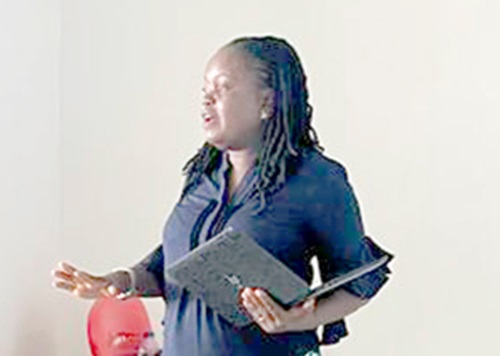Parents have been advised to guard against the excessive exposure of children under five years to screen time.
A Developmental Paediatrician at the Greater Accra Regional Hospital, Dr Yvonne Nanaama Brew, who gave the advice explained that this would help to enhance the developmental experience of such children.
She said that excessive exposure to screentime children could lead to complications such as loss of eye contact, difficulty in social interactions and increased restlessness.
“A growing brain needs activity and interaction. If a child is constantly engaged with screens, they miss critical opportunities to learn from their surroundings and connect with others,” she said at a workshop on early childhood development developmental screening and autism workshop in Accra last Wednesday.
Currently, the World Health Organization (WHO) recommends that children under 2 years old should have no screen time, with the exception of video-chatting.
For children aged two to five years. It further recommends limiting sedentary screen time to one hour per day or less.
She said these recommendations needed to be followed strictly to ensure development.
Workshop
Organised by the Paediatric Neurodevelopmental Clinic, a unit under the Child Health Department of the hospital, the third edition of the three- workshop for doctors and nurses is a flagship programme of the hospital.
![]()
The participants
Since its inception in 2023, over 100 professionals have benefited from the initiative which seeks to help the particpants to identify and address developmental issues in children early, improving outcomes through timely intervention and parental education.
More than 40 professionals participated in this year’s workshop which featured diagnosing and managing with subsequent ones expected to be held in Kumasi.
Multiple trainers took turns to discuss diagnosing and managing autism on the third day.
The training also addressed various aspects of early child development, including growth challenges, communication disorders, and the use of assessment documents such as the weighing card for early detection of issues affecting child development and practical child assessment.
Initiative
Dr Brew explained that the initiative was launched in 2023 in response to a concerning trend where children were being brought to the developmental clinics with significant delays in diagnoses, a situation which led to missed opportunities for early intervention.
As a result, she said the workshop had been instituted to ensure that health professionals were able to detect issues and addressed developmental challenges early.
Dr Brew added that following the outbreak of the COVID-19 pandemic, the hospital observed a situation where many children who were being broght to the unit and could not speak or behave like human beings should were because their parents had exposed them to tablets and mobile phones to prevent them from going out, leading to developmental delays.
As a result, she said the workshop was designed as part of a campaign to address the issue.
She urged parents to ensure their children engaged in meaningful human interaction, especially when employing the service of caregivers.
“A good nanny should interact and play with the child, promoting healthy development rather than merely providing entertainment,” she said underscoring the importance of not only identifying problems but also enhancing the developmental experiences of typically developing children.

